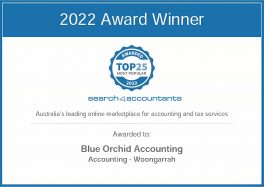1. Bank Interest received or paid recorded as GST inclusive.
Bank interest is a financial supply and therefore input taxed. Accordingly there is no GST received or entitlement to any input tax credit.
2. Merchant fees being recorded as input taxed.
Sometimes these fees include GST. PayPal fees are generally GST free, however eWay fees generally include GST. It is normally dependent on the payee.
3. Insurance payments being recorded as GST inclusive.
Some components of insurance payments contain stamp duty, this portion is GST free.
4. Similarly, car registration being recorded as GST inclusive.
Car registration includes TAC charges, this component is the only component that is subject to GST and claimable for GST purposes.
5. International postage being recorded as GST inclusive.
These expenses do not contain any input tax credits and are GST free.
6. Reporting wages and superannuation expenses at G11.
Wages are an employee expenses and should be reported at W1 and superannuation expenses should not be recorded on the BAS.
7. Claiming input tax credits on government charges.
These include ASIC fees, water rates and council rates. They are usually GST free and therefore no input tax credits should be claimed on these expenses.
8. Dividends being recorded as income and expenditure on the BAS.
They are paid out of retained profits of a business and accordingly are classified as a reduction in owner’s equity (capital). Dividends paid are not expenses and therefore should not be recorded on the BAS. Further, dividends received are not to be recorded on the BAS at G1.
9. Sole traders recording drawings and capital introduced into the business as GST inclusive.
These items are not to be recorded on the BAS.
10. Recharges being recorded as GST inclusive in the first instance.
When using pre-paid vouchers, usually for mobile phones, GST is not recorded until the voucher is redeemed. Generally, once it is redeemed it is linked to a taxable supply and therefore becomes GST inclusive.
11. Sale of business assets being incorrectly reported as GST free.
In most instances when a business asset is sold, the seller must charge GST and the buyer will be entitled to claim this component on their BAS, providing both parties are registered for GST.
12. Sale of a business as a going concern not being included in G1 and only G3.
If the sale of business meets the criteria for a sale of business as a going concern, the sale amount must be included at G1 and accordingly at G3 to reduce overall GST received for the period.
13. GST being recorded on residential rent.
Residential rent is input taxed and accordingly has no input tax credits.
14. Reporting GST only when it is received and not when it is earned when your business is on an accruals reporting cycle.
In order to claim input tax credits, your business must have a copy of the source document, being an invoice or receipt in case of an ATO audit. According to Tax Ruling 2005/9, the ATO accepts electronic copies providing they are fully legible. Where these records are scanned and stored electronically, the requirements of section 262A of the ITAA 1936 are satisfied to maintain records where the documents are:
- not altered or manipulated once stored;
- retained for the statutory period of five years; and
- capable of being retrieved and read at all times by ATO staff
Using a cloud accounting system, you can store these necessary documents with their corresponding transaction. Therefore the use of this software can assist your businesses by providing further productivity. We always recommend that businesses regularly backup this information as the ATO can request these documents at any time within the statutory period, or for an indefinite period where there is suspected fraud.













